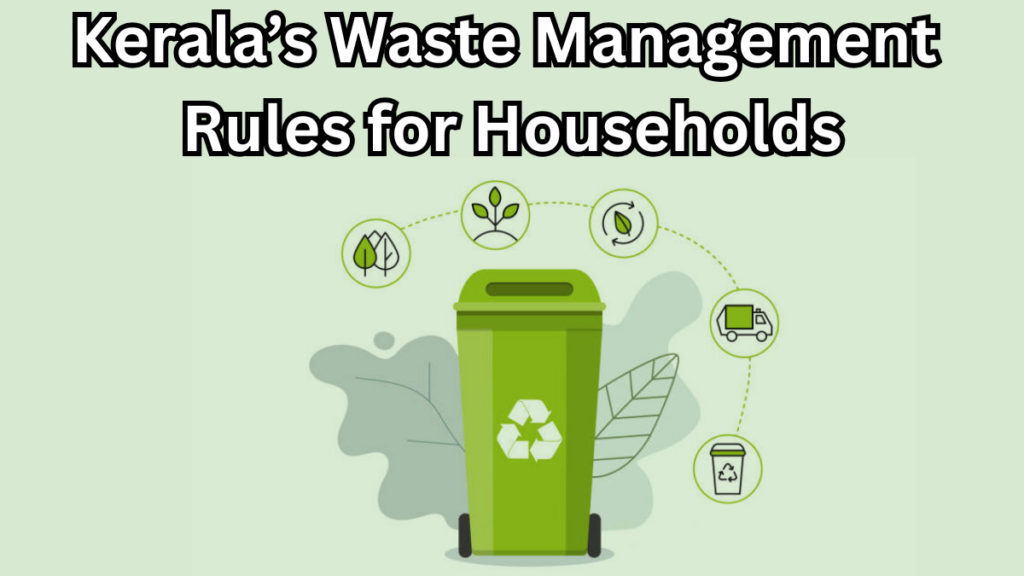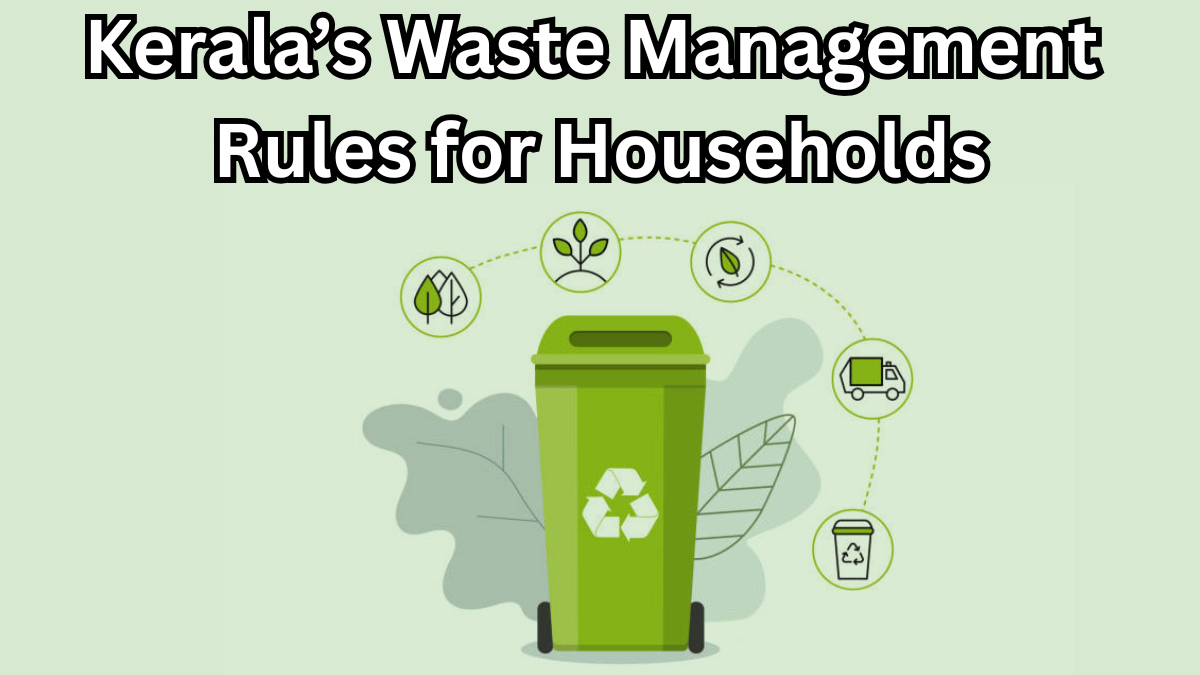Kerala is stepping up its green game in 2025 with a new set of household waste management rules. If you’re living in the state, it’s time to be aware of your responsibilities and how your garbage will be handled moving forward.
The aim? A cleaner, greener, and more sustainable Kerala.

Why These New Rules Matter
Kerala has long been applauded for its literacy rate and healthcare system — now it’s aiming for excellence in waste management too. Improper disposal has led to public health risks, pollution, and a growing landfill crisis. These new rules aim to shift focus to source segregation, recycling, and decentralized processing.
Key Highlights of the 2025 Waste Management Kerala Guidelines
Here’s what’s changing and what you need to follow:
| Category | New Rule 2025 |
|---|---|
| Segregation at Source | All households must separate waste into biodegradable, recyclable, and non-recyclable items. |
| Daily Collection | Households garbage collection will now happen every day, managed by local bodies. |
| Plastic Ban Enforcement | Strict ban on single-use plastic items. Fines will be imposed on violations. |
| Decentralized Composting | Composting units encouraged in apartments and residential colonies. |
| User Fees Introduced | Small monthly fee for garbage collection and processing, especially in urban areas. |
What You Must Do as a Resident
If you’re a resident, here’s your checklist under the new Waste Management Kerala rules:
-
Use three separate bins for organic, recyclable, and hazardous waste
-
Make sure your household garbage is placed at designated spots or handed over to the waste collectors
-
Avoid plastic carry bags and use cloth or jute alternatives
-
Consider starting composting at home — you might even receive a subsidy for it
-
Pay the nominal waste collection fee to support the infrastructure
What Happens If You Don’t Comply?
Kerala isn’t taking this lightly. Non-compliance can lead to:
-
Warnings and repeated visits by sanitation staff
-
Fines ranging from ₹500 to ₹5000 depending on the severity
-
Community notices and public naming (especially for flats and gated colonies)
Role of Local Bodies in Waste Management
Local bodies and Panchayats will play a crucial role in implementing the rules. Their responsibilities include:
| Task | Authority/Responsible Party |
|---|---|
| Door-to-door households garbage collection | Sanitation workers assigned by Municipalities |
| Setting up decentralized compost units | Municipal/Corporation offices |
| Issuing fines and awareness drives | Health Inspectors and Ward Councillors |
| Reporting violations to higher bodies | Waste Monitoring Committees |
Kerala’s Smart Waste Tracking – A Digital Push
The 2025 policy includes a mobile app and dashboard to:
-
Track waste pickup times
-
Lodge complaints
-
Monitor segregation compliance
-
Request special pickups for bulk waste
This digitization is set to modernize Waste Management Kerala and reduce human error in collection services.
FAQs
Q1: Is it mandatory for all households to segregate waste?
Yes, segregation at source is compulsory for all types of households under the 2025 policy.
Q2: What if waste collectors don’t show up daily?
You can register a complaint via the Waste Management Kerala app or contact your local ward office.
Q3: Will the government provide compost bins?
Yes, many local bodies offer subsidies or free compost bins for households and residential colonies.
Q4: Can I still use plastic for garbage disposal?
No. Plastic carry bags are strictly banned. Only certified compostable bags are allowed for waste disposal.
Final Thoughts
With the 2025 rules, Kerala is setting a benchmark in eco-responsibility. While the changes might require effort initially, they pave the way for a healthier environment and a more sustainable future. Every home, every street, and every citizen has a part to play in building a cleaner Kerala through responsible households garbage collection and waste segregation.
Let’s all do our bit—because a cleaner Kerala starts with us.
Click here to learn more
